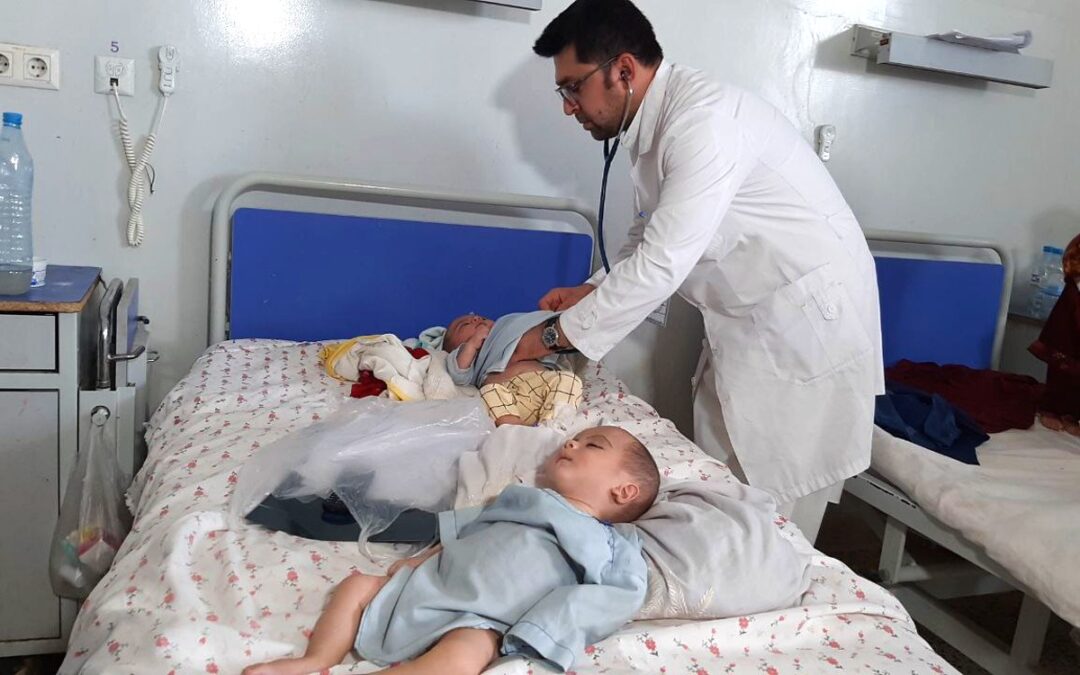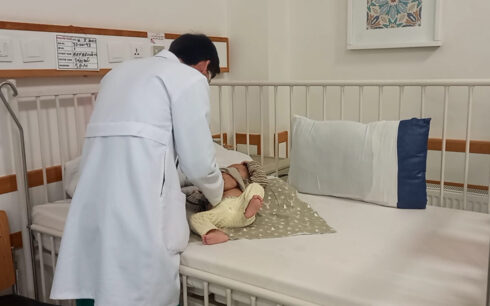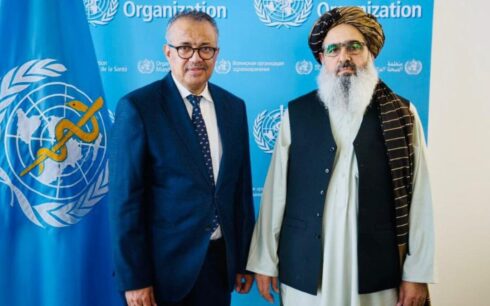The World Health Organization (WHO) has appealed for donors to urgently increase funding for Afghanistan, especially for the healthcare sector.
In a statement released on Friday, the WHO said the healthcare infrastructure in underserved areas of the country is severely under-resourced and remains vulnerable due to the ongoing humanitarian crisis.
The statement added that Afghanistan is currently facing a prolonged humanitarian crisis, with millions of people living with poor or no access to healthcare and food, putting them at severe risk of malnutrition and disease outbreaks.
WHO stated that it targeted 14 million people – including 7.5 million children and 3.1 million women – to provide healthcare assistance, out of which 8.4 million have already received services in the first six months of 2023.
The organization added that without sufficient funding, eight million people in Afghanistan will lose access to “essential and potentially lifesaving health assistance, and 450,000 patients will have little to no access to life-saving trauma care services, including blood transfusions and referrals.”
The WHO also highlighted the dire consequences that will result if underfunding continues in Afghanistan’s healthcare system.
“The situation in Afghanistan is grave, and the lack of resources and funding to support health workers and facilities is putting countless lives at risk. Women and children are suffering the most. I call on donors to give generously so that we can continue our life-saving work,” said Tedros Adhanom Ghebreyesus, WHO Director-General.
Meanwhile, Ahmed Al Mandhari, WHO Regional Director for the Eastern Mediterranean, urged the international community to unite with WHO to help tackle the ongoing humanitarian health crisis in Afghanistan.
“It is our collective responsibility to act now to support the Afghan healthcare system. The consequences of inaction are catastrophic and may leave a lasting impact on the health and well-being of the Afghan people,” he said.
Luo Dapeng, WHO Representative to Afghanistan, also expressed concern over the underfunding of the health system in Afghanistan, emphasizing the need for immediate action.
“The situation in Afghanistan is critical, and it demands urgent attention. For a country already affected by decades of conflict, underfunding of the healthcare system is a critical humanitarian concern. The consequences of this underfunding cannot be overstated. I want to thank our current partners who have provided support thus far, but also to call on them to redouble their efforts,” he said.
The health organization noted that it will continue working in the second half of 2023 to tackle critical health emergencies by providing life-saving health interventions in Afghanistan.
“Much work still needs to be done to deliver on WHO’s strategic areas; Protecting people every day; Reaching everyone, everywhere, and putting mothers and children first; Leading the health sector by coordinating the health partners, and driving impact in delivering effective health services in Afghanistan,” it added.




